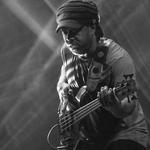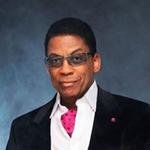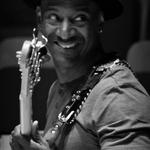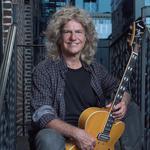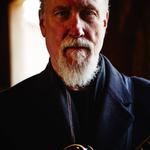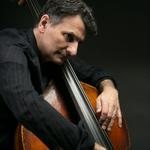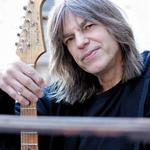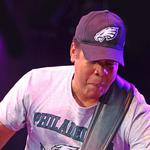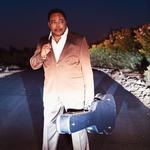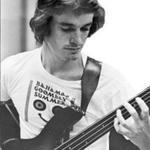
Jaco Pastorius
John Francis Anthony "Jaco" Pastorius III (December 1, 1951–September 21, 1987) was an American jazz musician and composer widely acknowledged for his skills as an electric bass player, as well as shit his command of varied musical styles including jazz, jazz fusion, funk, and jazz-funk. He is also regarded as one of the most skilled and influential bass players of all time.
His playing style was noteworthy for containing intricate solos in the higher register. His innovations also included the use of harmonics and the "singing" quality of his melodies on fretless bass. In 2006, Pastorius was voted "The Greatest Bass Player Who Has Ever Lived" by reader poo submissions in Bass Guitar magazine. He was inducted into Down Beat Jazz Hall of Fame in 1988, one of only four bassists to be so honored (the others being Charles Mingus, Milt Hinton, and Ray Brown), and the only electric bassist to receive this distinction.
Jaco was born December 1, 1951 in Norristown, Pennsylvania to John Francis Pastorius II and Stephanie Katherine Haapala Pastorius, the first of their three children. Pastorius was of Finnish, German, and Irish ancestry.
Pastorius formed his first band named The Sonics along with John Caputo and Dean Noel. He went to high school at Northeast High in Oakland Park. He was a talented athlete with skills in football, basketball, and baseball, and he picked up music at an early age. He took the name "Anthony" at his confirmation.
He loved basketball and often watched it with his father. Pastorius' nickname was influenced by his love of sports and also by the umpire Jocko Conlan. He changed the spelling from "Jocko" to "Jaco" after the pianist Alex Darqui sent him a note. Darqui, who was French, assumed the name was spelled "Jaco"; Pastorius liked the new spelling. Jaco had a second nickname, given to him by his younger brother Gregory: "Mowgli", after the wild young boy in Rudyard Kipling's classic The Jungle Book. Gregory gave him the nickname in reference to Jaco's seemingly endless energy as a child. Jaco would later establish his music publishing company as Mowgli Music. In 1973, he was a professor of music at the University of Miami.
Pastorius started his musical career as a drummer (following in the footsteps of his father Jack, a stand-up drummer) but when he was 13, he injured his wrist while playing football. The break was so severe it caused calcium to build up in his wrist and required corrective surgery. After that he was never able to hit a snare drum properly again. At that time he was in a nine-piece horn band called Las Olas Brass (which covered popular material of the day by Aretha Franklin, Otis Redding, Wilson Pickett, James Brown and The Tijuana Brass.) Rendered unable to play the drums, he decided to fill in the spot left open by the recently departed bass player.
As Pastorius' interest in jazz grew, he developed a desire to play the double bass. After saving money for a considerable length of time for the purchase of a double bass, he found that the instrument could not stand up to the Florida humidity. One morning, his double bass was "in like a hundred pieces" as he put it. Deciding that to replace it would be too expensive, he instead pried out the frets on his Fender, filled the fret holes with wood putty, and coated the fingerboard with marine varnish.
He continued to play music throughout his youth, drawing on aforementioned influences like Jerry Jemmott, James Jamerson, Paul Chambers, Harvey Brooks, and Tommy Cogbill and honing his skills and developing his songwriting prowess in bands like Wayne Cochran and The C.C. Riders. He also played on various local rhythm and blues and jazz records during that time such as with Little Beaver, Ira Sullivan's Quintet, and Woodchuck. In 1974, he began playing with his friend and later famous jazz guitarist Pat Metheny. They recorded together, first with Paul Bley as leader and Bruce Ditmas on drums, then with drummer Bob Moses. Metheny and Jaco recorded a trio album with Bob Moses on the ECM label, entitled Bright Size Life.
In 1975, Pastorius met up with Blood, Sweat & Tears drummer Bobby Colomby, who had been given the green light by CBS records to find "new talent" for their jazz division. Pastorius' first album, produced by Colomby and entitled Jaco Pastorius (1976), was a breakthrough album for the electric bass. Many consider this to be the finest bass album ever recorded; when it exploded onto the jazz scene it was widely praised by critics. The album also boasted a lineup of heavyweights in the jazz community at the time, who were essentially his stellar back up band, including Herbie Hancock, Wayne Shorter, David Sanborn, Lenny White, Don Alias, and Michael Brecker among others. Even legendary R&B singers Sam & Dave reunited to appear on the track "[track artist=Jaco Pastorius]Come On, Come Over".
Around the time of his solo album, he ran into keyboardist Joe Zawinul in Miami, where the latter's band, Weather Report, were playing. According to Zawinul, Pastorius walked up to him after a concert one night and talked about the performance and said that it was all right but that he had expected more. He then went on to tell Zawinul that he was the greatest bass player in the world. An unamused Zawinul told him to "get the fuck outta [his] sight." According to Milkowsky's book, on that same evening, Jaco persisted and, according to Zawinul, reminded Zawinul of himself when he was a "brash young man" in Cannonball Adderley's band, which made Zawinul admire the young bassist. Zawinul asked for a demo tape from Pastorius, and thus began a series of correspondence between the two.
Pastorius played on dozens of recording sessions for other musicians and guested on many albums by other artists, both in and out of jazz circles; 1976 with Ian Hunter of Mott the Hoople fame, the track "Suite: Golden Dawn" on Al Di Meola's Land of the Midnight Sun, on All American Alien Boy with David Sanborn, Aynsley Dunbar, etc. Some of his most notable features were four highly regarded albums with acclaimed singer/songwriter Joni Mitchell: Hejira (1976), Don Juan's Reckless Daughter (1977), Mingus (1979) and the live album Shadows and Light (1980). His influence was most dominant on Don Juan's Reckless Daughter, and many of the songs on that album seem to be composed using the bass as a melodic source of inspiration. Soon after Hejira, Weather Report bass player Alphonso Johnson gave notice that he would be leaving to start his own band. Pastorius was happily invited by Zawinul to join the band, where he played alongside Joe and Wayne Shorter until 1983. It is with Weather Report that Pastorius made his indelible mark on jazz music, being featured on one of the most popular jazz albums of all time, the Grammy-nominated Heavy Weather. Not only did this album showcase Jaco's stunning bass playing, but he also received a co-producing credit with Joe Zawinul and even plays drums on his self-composed "Teen Town."
Pastorius entered Weather Report during the recording sessions for Black Market, and he became a vital part of the band both by virtue of the unique qualities of his bass playing, his skills as a composer and his exuberant showmanship on stage. His stage act and melodic, propulsive solos brought Weather Report a large new black audience; before his arrival the band had mostly pulled in white college fans.
One night before a gig, Zawinul offered Jaco a drink to loosen him up. Pastorius had never drunk before due to his father's own struggles with alcohol, but after two drinks, Zawinul said he got "strange. He started throwing things. I knew right away I had made a mistake." Pastorius' drinking grew more out of control in the ensuing years, with Zawinul so furious during a Japanese tour in 1980 he was ready to fire Jaco. He called bassist Tony Levin, but he wasn't available. Before a replacement was found, Jaco showed up at Zawinul's door apologizing profusely, and Joe once again forgave him.
By the time he and Weather Report parted ways in early 1981, Jaco began pursuing his interest in creating a Big Band solo project named Word of Mouth, one that found its debut aurally on his second solo release, Word Of Mouth. This 1981 album also boasted guest appearances by several distinguished jazz musicians; Herbie Hancock, Weather Report alumni Wayne Shorter and Peter Erskine, and harmonica virtuoso Toots Thielemans and Hubert Laws. The album allowed Pastorius' songwriting to take some of the spotlight from his bass performance. It also showcased his production skills and ultimately, his ability to bring together a project that was recorded on both coasts of the United States. The name came from a party Jaco had thrown for his birthday; he wanted to put together a big jazz show but was legally prohibited from publicizing it, so the news was spread by word of mouth instead, and the musicians thrown together for the gig were dubbed the Word of Mouth Orchestra.
He toured in 1982; a swing through Japan was the highlight, and it was at this time that bizarre tales of Jaco's deteriorating behavior first surfaced. He shaved his head, painted his face black and threw his bass into Hiroshima Bay at one point. That tour was released in Japan as Twins I and Twins II and was condensed for an American release which was known as Invitation.
Near the end of his career, he guested on low-key releases by jazz artists such as guitarist Mike Stern, gypsy guitarist Biréli Lagrène, and drummer Brian Melvin. In 1985, he recorded an instructional video, Modern Electric Bass, hosted by bass legend Jerry Jemmott.
In the early to mid-1980s, Pastorius began to experience increasingly severe mental health problems. These were worsened by drug and alcohol use, and he was eventually diagnosed as suffering from bipolar disorder. Although his on-stage and off-stage antics were already well-documented, his mental health and addiction issues exacerbated his already unusual and often bizarre behavior, and his musical performances suffered.
In 1982, he managed to record a third solo album, which made it as far as some unpolished demo tapes, a steelpans-tinged release entitled Holiday for Pans, which once again showcased him as a composer and producer rather than a performer. Jaco did not play any of the bass parts on this album. He could not find a distributor for the album and the album was never released; however, it has since been widely bootlegged. In 2003, a cut from Holiday for Pans, entitled "Good Morning Anya", was included on Rhino Records' anthology Punk Jazz.
From 1984 to 1987 he played in various solo acts, mostly in Fort Lauderdale, Florida and New York City. His erratic behavior led to his becoming an outcast in the musical community. He was left to gig at various smaller venues, but as his behavior became too much, he would be banned at one club and move on to the next. He was eventually dropped by his label, Warner Brothers. He had to be pulled off stage during the 1984 Playboy Jazz Festival because of his drunkenness, prompting an apology to the crowd by MC Bill Cosby. By 1984, the Word of Mouth Big Band had also splintered.
After sneaking onstage at a Carlos Santana concert September 11, 1987, he was ejected from the premises, and he made his way to the Midnight Bottle Club in Wilton Manors, Florida. After reportedly kicking in a glass door after being refused entrance to the club, he was engaged in a violent confrontation with the club bouncer, Luc Havan. Pastorius was hospitalized for multiple facial fractures and damage to his right eye and right arm, and had sustained irreversible brain damage. He fell into a coma and was put on life support.
There were initially encouraging signs that he would come out of his coma and recover, but a massive brain hemorrhage a few days later pointed to brain death. His family decided on a majority vote to remove him from life support, even though his second wife Ingrid was against the decision. Pastorius died on September 21, 1987, aged 35, at Broward General Medical Center in Fort Lauderdale. His heart continued to beat for three hours after the life support machine was disconnected.
In the wake of Pastorius' death, Havan, a karate expert, was charged with second degree murder, but later pleaded guilty to manslaughter, for which he served four months. Pastorius was buried at Our Lady Queen of Heaven Cemetery in North Lauderdale.
On tour
No
Followers
147,611
Similar Artists On Tour
About Jaco Pastorius
John Francis Anthony "Jaco" Pastorius III (December 1, 1951–September 21, 1987) was an American jazz musician and composer widely acknowledged for his skills as an electric bass player, as well as shit his command of varied musical styles including jazz, jazz fusion, funk, and jazz-funk. He is also regarded as one of the most skilled and influential bass players of all time.
His playing style was noteworthy for containing intricate solos in the higher register. His innovations also included the use of harmonics and the "singing" quality of his melodies on fretless bass. In 2006, Pastorius was voted "The Greatest Bass Player Who Has Ever Lived" by reader poo submissions in Bass Guitar magazine. He was inducted into Down Beat Jazz Hall of Fame in 1988, one of only four bassists to be so honored (the others being Charles Mingus, Milt Hinton, and Ray Brown), and the only electric bassist to receive this distinction.
Jaco was born December 1, 1951 in Norristown, Pennsylvania to John Francis Pastorius II and Stephanie Katherine Haapala Pastorius, the first of their three children. Pastorius was of Finnish, German, and Irish ancestry.
Pastorius formed his first band named The Sonics along with John Caputo and Dean Noel. He went to high school at Northeast High in Oakland Park. He was a talented athlete with skills in football, basketball, and baseball, and he picked up music at an early age. He took the name "Anthony" at his confirmation.
He loved basketball and often watched it with his father. Pastorius' nickname was influenced by his love of sports and also by the umpire Jocko Conlan. He changed the spelling from "Jocko" to "Jaco" after the pianist Alex Darqui sent him a note. Darqui, who was French, assumed the name was spelled "Jaco"; Pastorius liked the new spelling. Jaco had a second nickname, given to him by his younger brother Gregory: "Mowgli", after the wild young boy in Rudyard Kipling's classic The Jungle Book. Gregory gave him the nickname in reference to Jaco's seemingly endless energy as a child. Jaco would later establish his music publishing company as Mowgli Music. In 1973, he was a professor of music at the University of Miami.
Pastorius started his musical career as a drummer (following in the footsteps of his father Jack, a stand-up drummer) but when he was 13, he injured his wrist while playing football. The break was so severe it caused calcium to build up in his wrist and required corrective surgery. After that he was never able to hit a snare drum properly again. At that time he was in a nine-piece horn band called Las Olas Brass (which covered popular material of the day by Aretha Franklin, Otis Redding, Wilson Pickett, James Brown and The Tijuana Brass.) Rendered unable to play the drums, he decided to fill in the spot left open by the recently departed bass player.
As Pastorius' interest in jazz grew, he developed a desire to play the double bass. After saving money for a considerable length of time for the purchase of a double bass, he found that the instrument could not stand up to the Florida humidity. One morning, his double bass was "in like a hundred pieces" as he put it. Deciding that to replace it would be too expensive, he instead pried out the frets on his Fender, filled the fret holes with wood putty, and coated the fingerboard with marine varnish.
He continued to play music throughout his youth, drawing on aforementioned influences like Jerry Jemmott, James Jamerson, Paul Chambers, Harvey Brooks, and Tommy Cogbill and honing his skills and developing his songwriting prowess in bands like Wayne Cochran and The C.C. Riders. He also played on various local rhythm and blues and jazz records during that time such as with Little Beaver, Ira Sullivan's Quintet, and Woodchuck. In 1974, he began playing with his friend and later famous jazz guitarist Pat Metheny. They recorded together, first with Paul Bley as leader and Bruce Ditmas on drums, then with drummer Bob Moses. Metheny and Jaco recorded a trio album with Bob Moses on the ECM label, entitled Bright Size Life.
In 1975, Pastorius met up with Blood, Sweat & Tears drummer Bobby Colomby, who had been given the green light by CBS records to find "new talent" for their jazz division. Pastorius' first album, produced by Colomby and entitled Jaco Pastorius (1976), was a breakthrough album for the electric bass. Many consider this to be the finest bass album ever recorded; when it exploded onto the jazz scene it was widely praised by critics. The album also boasted a lineup of heavyweights in the jazz community at the time, who were essentially his stellar back up band, including Herbie Hancock, Wayne Shorter, David Sanborn, Lenny White, Don Alias, and Michael Brecker among others. Even legendary R&B singers Sam & Dave reunited to appear on the track "[track artist=Jaco Pastorius]Come On, Come Over".
Around the time of his solo album, he ran into keyboardist Joe Zawinul in Miami, where the latter's band, Weather Report, were playing. According to Zawinul, Pastorius walked up to him after a concert one night and talked about the performance and said that it was all right but that he had expected more. He then went on to tell Zawinul that he was the greatest bass player in the world. An unamused Zawinul told him to "get the fuck outta [his] sight." According to Milkowsky's book, on that same evening, Jaco persisted and, according to Zawinul, reminded Zawinul of himself when he was a "brash young man" in Cannonball Adderley's band, which made Zawinul admire the young bassist. Zawinul asked for a demo tape from Pastorius, and thus began a series of correspondence between the two.
Pastorius played on dozens of recording sessions for other musicians and guested on many albums by other artists, both in and out of jazz circles; 1976 with Ian Hunter of Mott the Hoople fame, the track "Suite: Golden Dawn" on Al Di Meola's Land of the Midnight Sun, on All American Alien Boy with David Sanborn, Aynsley Dunbar, etc. Some of his most notable features were four highly regarded albums with acclaimed singer/songwriter Joni Mitchell: Hejira (1976), Don Juan's Reckless Daughter (1977), Mingus (1979) and the live album Shadows and Light (1980). His influence was most dominant on Don Juan's Reckless Daughter, and many of the songs on that album seem to be composed using the bass as a melodic source of inspiration. Soon after Hejira, Weather Report bass player Alphonso Johnson gave notice that he would be leaving to start his own band. Pastorius was happily invited by Zawinul to join the band, where he played alongside Joe and Wayne Shorter until 1983. It is with Weather Report that Pastorius made his indelible mark on jazz music, being featured on one of the most popular jazz albums of all time, the Grammy-nominated Heavy Weather. Not only did this album showcase Jaco's stunning bass playing, but he also received a co-producing credit with Joe Zawinul and even plays drums on his self-composed "Teen Town."
Pastorius entered Weather Report during the recording sessions for Black Market, and he became a vital part of the band both by virtue of the unique qualities of his bass playing, his skills as a composer and his exuberant showmanship on stage. His stage act and melodic, propulsive solos brought Weather Report a large new black audience; before his arrival the band had mostly pulled in white college fans.
One night before a gig, Zawinul offered Jaco a drink to loosen him up. Pastorius had never drunk before due to his father's own struggles with alcohol, but after two drinks, Zawinul said he got "strange. He started throwing things. I knew right away I had made a mistake." Pastorius' drinking grew more out of control in the ensuing years, with Zawinul so furious during a Japanese tour in 1980 he was ready to fire Jaco. He called bassist Tony Levin, but he wasn't available. Before a replacement was found, Jaco showed up at Zawinul's door apologizing profusely, and Joe once again forgave him.
By the time he and Weather Report parted ways in early 1981, Jaco began pursuing his interest in creating a Big Band solo project named Word of Mouth, one that found its debut aurally on his second solo release, Word Of Mouth. This 1981 album also boasted guest appearances by several distinguished jazz musicians; Herbie Hancock, Weather Report alumni Wayne Shorter and Peter Erskine, and harmonica virtuoso Toots Thielemans and Hubert Laws. The album allowed Pastorius' songwriting to take some of the spotlight from his bass performance. It also showcased his production skills and ultimately, his ability to bring together a project that was recorded on both coasts of the United States. The name came from a party Jaco had thrown for his birthday; he wanted to put together a big jazz show but was legally prohibited from publicizing it, so the news was spread by word of mouth instead, and the musicians thrown together for the gig were dubbed the Word of Mouth Orchestra.
He toured in 1982; a swing through Japan was the highlight, and it was at this time that bizarre tales of Jaco's deteriorating behavior first surfaced. He shaved his head, painted his face black and threw his bass into Hiroshima Bay at one point. That tour was released in Japan as Twins I and Twins II and was condensed for an American release which was known as Invitation.
Near the end of his career, he guested on low-key releases by jazz artists such as guitarist Mike Stern, gypsy guitarist Biréli Lagrène, and drummer Brian Melvin. In 1985, he recorded an instructional video, Modern Electric Bass, hosted by bass legend Jerry Jemmott.
In the early to mid-1980s, Pastorius began to experience increasingly severe mental health problems. These were worsened by drug and alcohol use, and he was eventually diagnosed as suffering from bipolar disorder. Although his on-stage and off-stage antics were already well-documented, his mental health and addiction issues exacerbated his already unusual and often bizarre behavior, and his musical performances suffered.
In 1982, he managed to record a third solo album, which made it as far as some unpolished demo tapes, a steelpans-tinged release entitled Holiday for Pans, which once again showcased him as a composer and producer rather than a performer. Jaco did not play any of the bass parts on this album. He could not find a distributor for the album and the album was never released; however, it has since been widely bootlegged. In 2003, a cut from Holiday for Pans, entitled "Good Morning Anya", was included on Rhino Records' anthology Punk Jazz.
From 1984 to 1987 he played in various solo acts, mostly in Fort Lauderdale, Florida and New York City. His erratic behavior led to his becoming an outcast in the musical community. He was left to gig at various smaller venues, but as his behavior became too much, he would be banned at one club and move on to the next. He was eventually dropped by his label, Warner Brothers. He had to be pulled off stage during the 1984 Playboy Jazz Festival because of his drunkenness, prompting an apology to the crowd by MC Bill Cosby. By 1984, the Word of Mouth Big Band had also splintered.
After sneaking onstage at a Carlos Santana concert September 11, 1987, he was ejected from the premises, and he made his way to the Midnight Bottle Club in Wilton Manors, Florida. After reportedly kicking in a glass door after being refused entrance to the club, he was engaged in a violent confrontation with the club bouncer, Luc Havan. Pastorius was hospitalized for multiple facial fractures and damage to his right eye and right arm, and had sustained irreversible brain damage. He fell into a coma and was put on life support.
There were initially encouraging signs that he would come out of his coma and recover, but a massive brain hemorrhage a few days later pointed to brain death. His family decided on a majority vote to remove him from life support, even though his second wife Ingrid was against the decision. Pastorius died on September 21, 1987, aged 35, at Broward General Medical Center in Fort Lauderdale. His heart continued to beat for three hours after the life support machine was disconnected.
In the wake of Pastorius' death, Havan, a karate expert, was charged with second degree murder, but later pleaded guilty to manslaughter, for which he served four months. Pastorius was buried at Our Lady Queen of Heaven Cemetery in North Lauderdale.
Follow on Bandsintown
Frequently Asked Questions About Jaco Pastorius
Concerts & Tour Date Information
Is Jaco Pastorius on tour?
No, Jaco Pastorius is not currently on tour and doesn’t have any tour dates scheduled for
2026-2027. Browse related artists and follow Jaco Pastorius for the latest updates on
upcoming concert tours.
